[one_third][alert type=”blue”]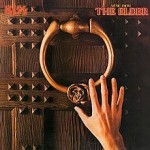
Released: November 16, 1981
Label: Casablanca Records[/alert][/one_third]After the commercial and critical failure of Unmasked and losing tens of millions dollars on the expensive SuperKISS tour and solo albums, KISS desperately needed a hit record. Casablanca, hit hard not only by the failure of recent KISS albums but the death of disco, was bought by PolyGram Records in 1980 and the new label was putting a great deal of pressure on the band to produce something that would reach the heights of their mid-to-late ’70s peak. In addition, KISS’ core fanbase was abandoning them in droves for softening their look and their sound and the band was now routinely mocked in rock magazines for being irrelevant. It was only one year into the ’80s but KISS was already written off by many as a band of the ’70s.
Originally, when KISS began recording demos for their ninth studio album in March of 1981, they were planning on returning to their hard rock roots. Quickly though, Gene, Paul, and manager Bill Aucoin decided that a mere back to basics album would fail to recapture the public’s imagination. In order for KISS to win back their fans and win over a new audience, it was decided that the band would have record their most ambitious album yet. They reunited with the producer of Destroyer (not only their most successful album but their most musically ambitous prior to this point) Bob Ezrin, who had come off the success of co-producing Pink Floyd’s The Wall, a widely successful album that elicited a highly divisive response of its own.
Ezrin brought in The American Symphony Orchestra and St. Robert’s Choir to record tracks for the album. Perhaps strangest of all, Bob Ezrin brought in Lou Reed (yes, Lou Reed) to help write lyrics for the album. Ezrin had produced Reed’s landmark album Berlin and thought the art rocker would provide the credibility that would win the critics over to the KISS Army. So Reed actually had a hand in writing not one, not two, but three songs on the album. And as we all know now, Lou Reed collaborating with hard rock bands always turns out well…
Like KISS, Bob Ezrin had changed quite a bit in the five years since Destroyer. The recreational cocaine use he partaken in, in the mid ’70s, had blossomed into a full blown addiction and he would often spend days at end in the studio crafting the masterpiece that would be KISS’ version of The Wall. Speaking of drug use, Ace Frehley was one person who, not surprisingly, was not happy with the new musical direction the band was taken. Unfortunately for him, with Criss’ ouster from the band, Ace was now often outvoted 2 to 1 in band decisions by Gene and Paul (Eric Carr was not a partner in the group as the three originals were and thus did not have a vote). To add insult to injury for the Spaceman, the enmity between him and Bob Ezrin during Destroyer had only intensified in the ensuing years and most of Frehley’s guitar solos were deleted from the album. His one contribution was “Dark Light”, a song that half mocks the conceit of a high minded KISS concept album.
Said concept for the album is sort of nebulous. The album tells the story of a young boy (cleverly titled “The Boy”) who is chosen by The Council of The Elders who belong to the Order of the Rose, a mysterious group that fights evil, to undertake a mystical odyssey. The Boy is mentored by an elderly, er, Elder named Morpheus, who helps The Boy overcome his doubts and fears. At the end of the album, Morpheus proudly declares that The Boy is ready to begin the Odyssey.
Cocaine is a hell of a drug.
Gene & Paul were intent on making this unlike any other KISS album. In fact, no pictures of the band were included on the albums cover or in the liner notes. It was thought perhaps that this could be the birth of a new KISS. PolyGram initially was excited about the album. They considered doing a live premiere of the album at arenas across the country on closed circuit television. At one point, production for a film adaptation of the album was announced in the Hollywood trade papers with Meatballs star Chris Makepeace playing The Boy. KISS adopted a new look for the album. They stripped away some of the excess of their SuperKISS era costumes (yet somehow managed to look even more ridiculous) and became the first hard rock/metal band to make a huge deal out of cutting their hair.
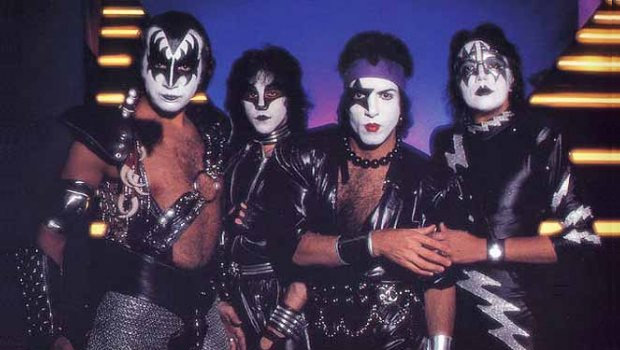
PolyGram’s enthusiasm for the as yet untitled album evaporated when the album was premiered for them in October of ’81. During the production of the album, Ezrin had refused to let anybody outside of the band except Bill Aucoin listen to the work in progress. Enthusiasm for the new album was tepid at best and non-existent at worst. KISS business manager Howard Marks steadfastly refused to let his name or the name of his agency listed in the album’s credits and was furious that the band would record a “KISS album that sounded nothing like KISS”. PolyGram very nearly refused to release the album as it had a clause in its contract with KISS to allow it to do so. However, forcing KISS back to the studio meant that it might take another year for them to produce a more suitable album. So reluctantly, the album, now officially titled Music From “The Elder” was set for release on November 16th, 1981.
Despite slightly more positive critical reviews than usual (Rolling Stone compared the album to Jethro Tull, for some reason), the album was a massive commercial failure. It peaked at #75 on the Billboard charts in January ’82 and was out of the charts completely a month later. The album barely did any better overseas where Unmasked was embraced. The rock press which had loved KISS and followed their every move three years earlier took every chance to mock KISS’ irrelevancy and their new found “artistic ambition” and new wave look. The album not only failed to go platinum but also failed to go gold (which Unmasked barely managed to do). With such poor sales, touring was out of the question. KISS promotion for the album was limited to a music video for lead off single “A World Without Heroes” and appearances on SNL knockoff Fridays and Solid Gold. There was also a disastrous “live via” satellite, lipsynched performance for Italy’s Sanremo Music Festival in January ’82, taped at another fading institution of the ’70s, Studio 54. For the first of only two times in their career, KISS appeared as a trio since Ace Frehley was found in his mansion earlier that day in no condition to perform.
If Dynasty and Unmasked had greatly diminished KISS popularity, Music From “The Elder” had practically obliterated it. KISS fans were enraged by this new direction and non-fans were amused by the thought of a gentler, more introspective KISS. They had lost millions of dollars and millions of fans. As KISS stumbled towards their 10th Anniversary, it was decided the band had to strip away a great deal of the excess (we won’t be needing you again, St. Robert’s Choir) and get back to the basics. Even if stripping away the excess meant getting rid of another member of the band…
Harder and Heavier
[one_third][alert type=”blue”]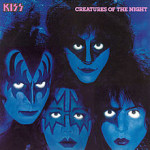
Released: October 13, 1982
Label: Casablanca Records[/alert][/one_third]At the beginning of 1982, KISS was at its lowest point since its days playing clubs and opening up for the likes of Black Oak Arkansas and Foghat. They had made their name on their wild, raucous live show and yet their last two albums were such flops that they were forced to cancel the planned U.S. tours. Their label situation was also in a state of disarray. Casablanca had been sold to PolyGram Records in 1980 and on May 8th, 1982, Casablanca founder Neil Bogart passed away from cancer. Using a clause in their original contract that said, KISS could leave the label if Bogart did, KISS become free agents and signed a lucrative deal with Mercury, a more hard rock friendly subsidiary of PolyGram that was home to acts like Scorpions and Rush.
In the Summer of ’82, KISS began setting out to record the hard charging rock album that they had promised their fans two years earlier after the fickle reception of the pop laden Unmasked. As sessions began, KISS was essentially a trio. Ace Frehley still made appearances with the group but had ended his involvement with the group after his miserable experience on the previous album Music From “The Elder”. Frehley was not only battling The Demon but also his personal demons (har har) during this period, being behind the wheel in not one but two drunk driving accidents. One of which involved driving 100 mph on the Bronx River Expressway in a Delorean. A story he would breathlessly recount a few years later with his solo band, Frehley’s Comet in the unintentional comedy classic “Rock Soldiers”
Anyway, during pre-production of the album, a surprising figure stepped up to volunteer to replace The Spaceman… Eddie Van Halen. Van Halen had been discovered a few years earlier in a Southern California club by Gene Simmons and The Demon even produced a demo record for the Van Halen. Eddie had grown tired of David Lee Roth’s antics and wanted to join KISS. Wisely, Gene and Eddie’s brother Alex persuaded the guitarist to stay with the band supplanting KISS as America’s most popular rock band. Instead the band used an ensemble of lead guitarists to replace Ace, ranging from jazz guitarist Robben Ford to Alive II axeman Bob Kulick to future Mr. Mister guitarist Steve Farris.
Most notable of the guitarists was Vinnie Vincent, an eccentric session musician who had been a staff songwriter for Happy Days and Joanie Loves Chachi. Initially, his personality meshed well with Gene and Paul’s and he helped write three songs for the album including lead off single “I Love It Loud”. Loud was a good word to describe Creatures of the Night, it was to that point, KISS’ darkest and heaviest album. After Dynasty and Unmasked, the band wanted to show the current hard rock/metal scene that not only could they return to their old sound but keep up with heavier bands like Accept, Iron Maiden, and Judas Priest. This was also the first album where Eric Carr’s drumming was on full display. The world saw the new drummer was more John Bonham than Gene Krupa.
Not only had the band’s sound returned to its heavier roots but their look changed. Gone were the capes and headbands and back were the leather, studs, and chains.
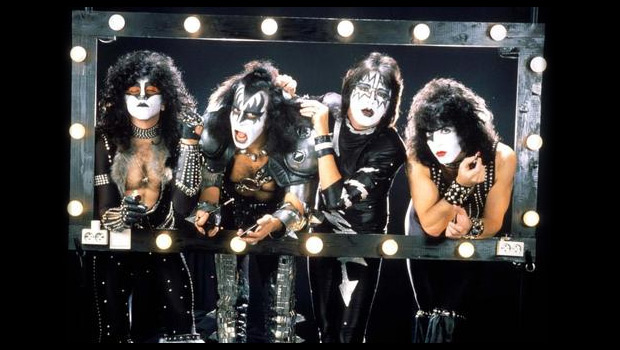
To showcase the leaner, meaner KISS, the band filmed a video for then fledgling cable network MTV. The video showcased the stage for their upcoming 10th Anniversary Tour, which prominently featured Carr’s drum kit as a metallic tank (with an exploding turret). Fun fact: The concerned dad of the KISS fanatic in the video is KISS business manager Howard Marks, who we last saw refusing to be associated with Music From “The Elder”.
All of the promotion did little to deter the band’s commercial decline. The album peaked at #45 on the Billboard charts (significantly higher than The Elder‘s peak of #75) but once again failed to go gold. KISS didn’t fare much better on the road than they did on the charts. Frehley officially was sidelined with injuries from the car wreck (his first one, not the one depicted in “Rock Soldiers”) so the press and fans were told he was unable to tour but might pop up to sit in on a few songs. Unofficially though, Frehley was kicked out of the band after a promotional tour of Europe in the Fall of ’82 but he retained a partnership with the band (earned one-quarter of their profits) until 1985.
To replace The Spaceman on tour, KISS hired their buddy Vinnie Vincent. To replace the iconic Spaceman, Vinnie Vincent (who already had a kickass stage name to begin with) came up with the unforgettable character of…
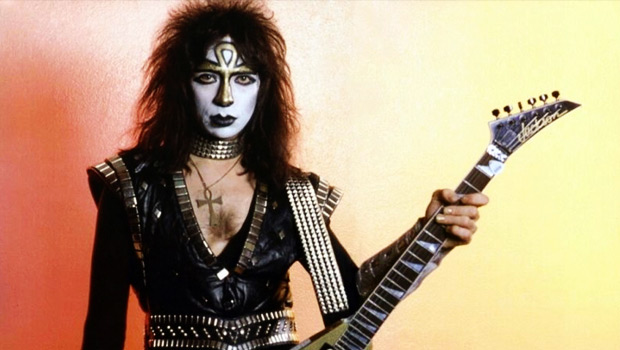
Egyptian Ankh Warrior?!
Anyway, the new look KISS did not win over a great deal of new fans. Old fans of the band had long stopped listening to the band after being letdown by their ventures into disco and progressive rock. And despite their best effort, KISS were old hat next to bands like Judas Priest, Iron Maiden, and AC/DC (who had all opened up for the band during their late ’70s heyday). The Creatures of Night/10th Anniversary tour was greeted by many half full (or less) arenas. Paul Stanley famously recounted one show during the tour in Lexington, Kentucky where he threw a guitar pick and it flew past the entire audience of 2,000 people and hit the empty floor behind them. The band quickly abandoned their plans for a second leg of the tour in the United States for a week of shows in greener pastures.
In Brazil, KISS wasn’t a creaky dinosaur act but still the hottest band on Earth. In June of 1983, the band headed to South America for three shows and were treated as conquering heroes. At the largest stadium in the world, Rio’s Maracana Stadium, the band played to 200,000+ people, the largest audience of the band’s career.
It was a nice silver lining to one of the darkest periods in KISStory. Over the course of the past three years, the band had changed its sound repeatedly (KISS has gone disco! KISS has gone pop! KISS has gotten deep and introspective! KISS is metal!) but all of the style changes had failed to capture the public’s imagination and now they were at their lowest point of popularity since arriving . Now the band, whose success was heavily owed to their look, realized that they would have to change their appearance to gain back the media attention that they once took for granted. KISS didn’t just need to tweak their outfits or cut their hair. They needed to change everything that the band stood for.
Next time on Connor’s KISS Korner: KISS undergoes its most radical visual transformation ever, while retaining the hard rock edge of Creatures of the Night. Join me as I Lick It Up.

